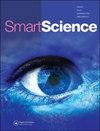新冠肺炎对使用图像处理技术、人工智能和机器学习方法检测癌症的影响
IF 1.4
Q2 MULTIDISCIPLINARY SCIENCES
引用次数: 0
摘要
摘要由于免疫系统受损,癌症患者对新冠肺炎特别敏感,更容易受到其影响。由于多种因素,LC患者的诊断、治疗和善后护理在整个疫情期间都非常困难和耗时。在这些情况下,使用尖端技术对LC患者进行护理,有可能利用机器学习(ML)算法和人工智能(AI)来增强诊断、治疗和进步。研究人员可能能够使用治疗和成像数据以及ML技术来区分冠状病毒引起的肺部问题和化疗和放疗等引起的肺部疾病。人工智能确保合适的个体比过去以传统和耗时的方式更有效、更快地参与LC临床研究。为了有效治疗癌症患者并找到新的、更有效的治疗方法,突破传统的研究方法,利用人工智能和机器学习(AIML)至关重要。当应用于各种患者群体时,基于人工智能的算法可以快速识别癌症CT扫描与新冠肺炎相关的肺炎,并准确区分非新冠肺炎,这对于人工智能意义重大的疫情发生机制具有重要意义。在这项研究中,可以利用当前的挑战和预测的未来来指导人工智能和ML在流行病中的最佳应用。图形摘要本文章由计算机程序翻译,如有差异,请以英文原文为准。
Impact of covid-19 in lung cancer detection using image processing techniques, artificial intelligence and machine learning approaches
ABSTRACT Due to their impaired immune systems, lung cancer (LC) patients are especially sensitive to COVID-19 and are more susceptible to it as well as its related effects. The diagnosis, treatment and aftercare of LC patients are exceedingly difficult and time-consuming throughout an epidemic due to a multitude of factors. In these situations, the care of LC patients using cutting-edge technologies offers the potential to enhance the diagnosis, treatment, and advancements using machine learning (ML) algorithms and artificial intelligence (AI). The researchers might be able to differentiate between lung problems brought on by the corona virus and those brought on by, for example, chemotherapy and radiation, using therapeutic and imaging data as well as ML techniques. AI ensures that the appropriate individuals are enrolled in LC clinical research more effectively and rapidly than in the past, when it was done in a conventional and time-consuming manner. To effectively treat cancer patients and find new, more potent treatments, it is critical to move past traditional research approaches and make use of artificial intelligence and machine learning (AIML). When applied to various patient populations, AI based algorithms can swiftly identify lung cancer CT scans with COVID-19-linked pneumonia and accurately distinguish non-COVID connected pneumonia, which is significant for thoughtful mechanisms of an outbreak that is significant to AI. It is possible to use the present challenges and projected futures in this study to direct the best application of AI and ML in an epidemic. GRAPHICAL ABSTRACT
求助全文
通过发布文献求助,成功后即可免费获取论文全文。
去求助
来源期刊

Smart Science
Engineering-Engineering (all)
CiteScore
4.70
自引率
4.30%
发文量
21
期刊介绍:
Smart Science (ISSN 2308-0477) is an international, peer-reviewed journal that publishes significant original scientific researches, and reviews and analyses of current research and science policy. We welcome submissions of high quality papers from all fields of science and from any source. Articles of an interdisciplinary nature are particularly welcomed. Smart Science aims to be among the top multidisciplinary journals covering a broad spectrum of smart topics in the fields of materials science, chemistry, physics, engineering, medicine, and biology. Smart Science is currently focusing on the topics of Smart Manufacturing (CPS, IoT and AI) for Industry 4.0, Smart Energy and Smart Chemistry and Materials. Other specific research areas covered by the journal include, but are not limited to: 1. Smart Science in the Future 2. Smart Manufacturing: -Cyber-Physical System (CPS) -Internet of Things (IoT) and Internet of Brain (IoB) -Artificial Intelligence -Smart Computing -Smart Design/Machine -Smart Sensing -Smart Information and Networks 3. Smart Energy and Thermal/Fluidic Science 4. Smart Chemistry and Materials
 求助内容:
求助内容: 应助结果提醒方式:
应助结果提醒方式:


